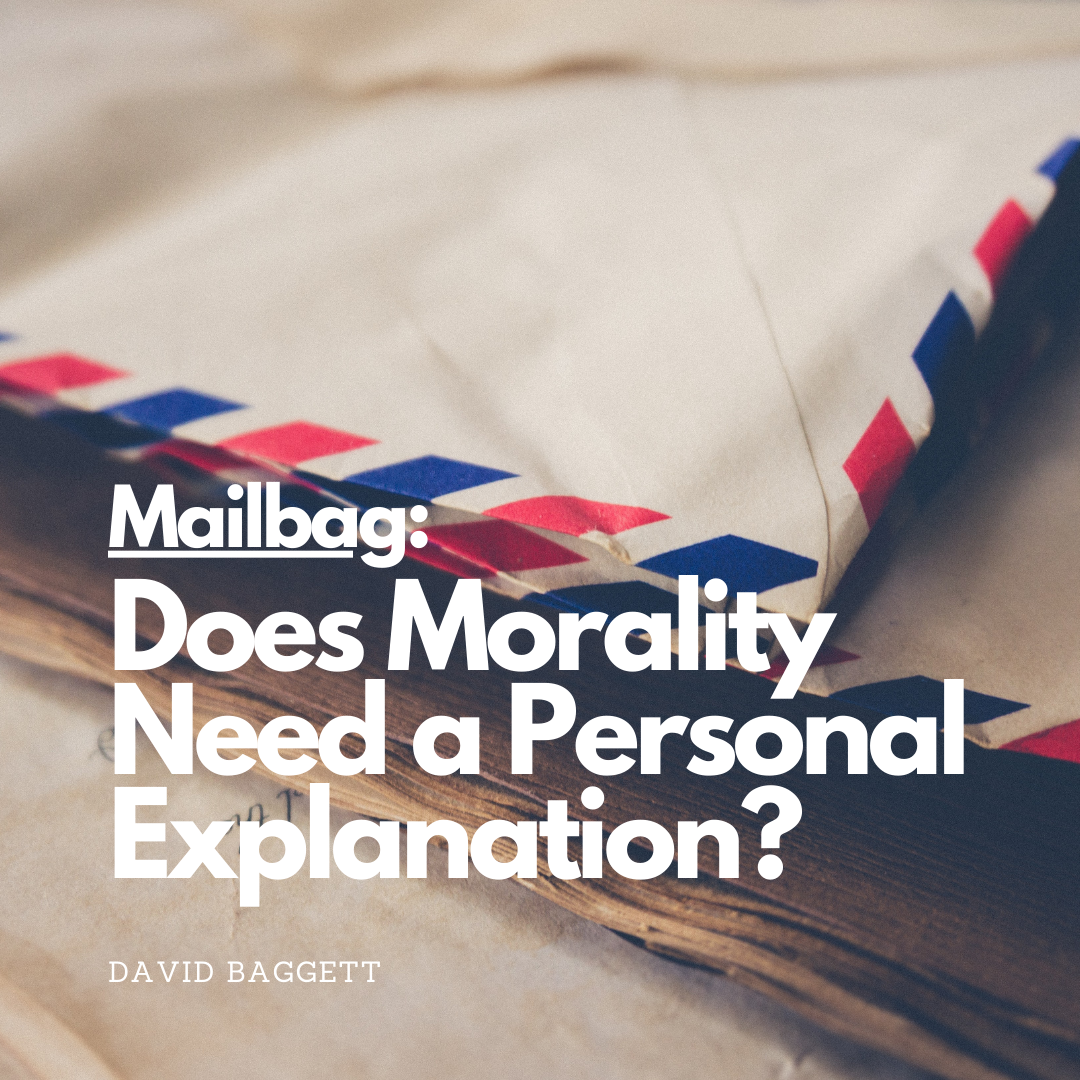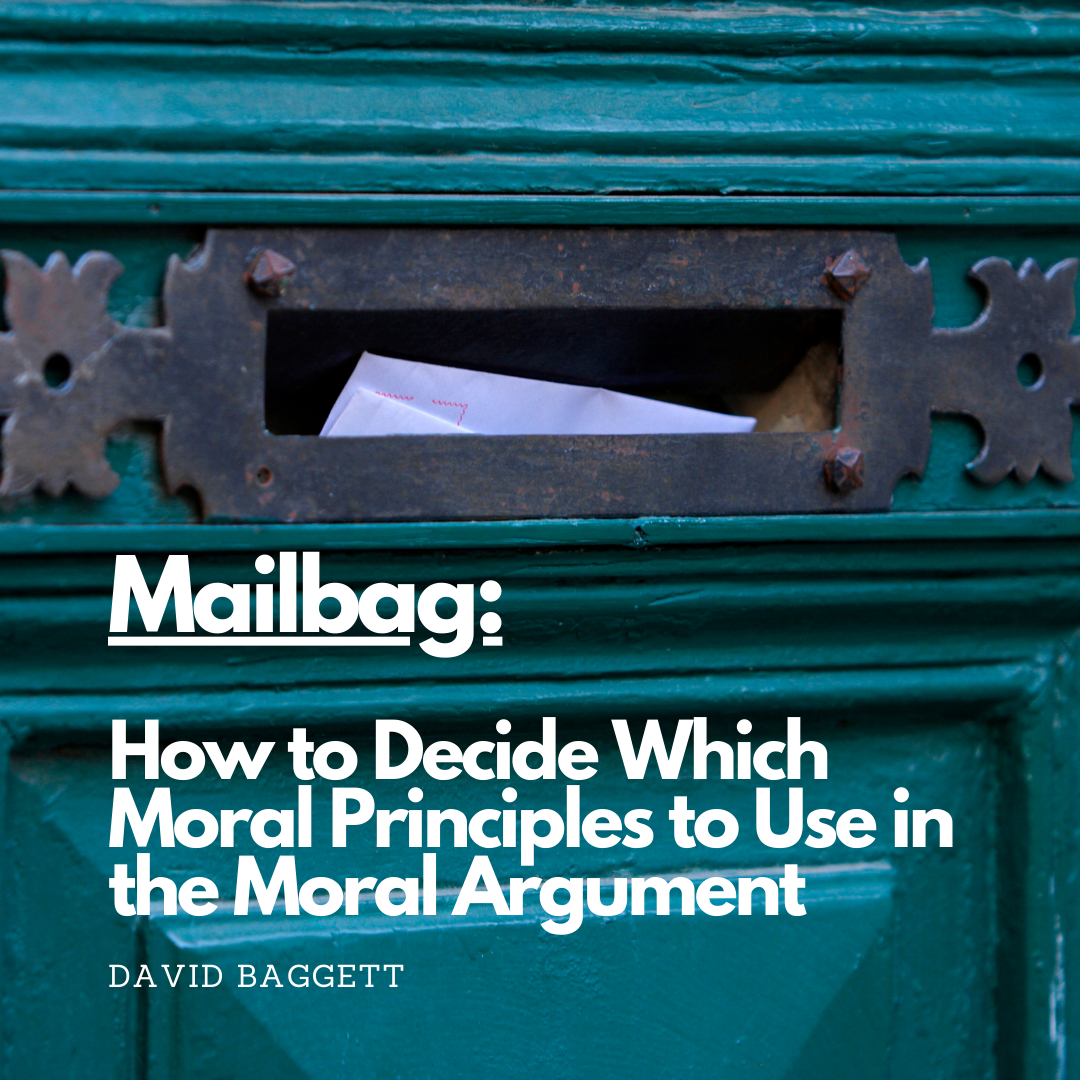Berat writes:
Hello,
Is there a post on the "ontological foundation of evil"? It seems to me that theistic metaethical theories have a strange implication like this: If God exists, he is the substantial ontological foundation of goodness. However, evil can't have a substantial ethical foundation like goodness since God doesn't have anything substantially evil in his nature. Therefore, evil is somehow derivative, it supervenes on God's attitudes and/or commands. It seems to be that something like privation theory of evil has to be true for a theistic metaethical theory to be able to completely explain the realm of moral values.
I'm highly skeptical of privation theories. So, my question is this: Can theism provide a substantial ontological foundation for evil as well? Like something analogous to Goodness=God's Essential Moral Nature.
Reply by Jonathan Pruitt
Hi Berat,
Thanks for this great question. Before attempting an answer, I think it will help to say what makes this such an important issue. If we think of God as identical to the good, as Baggett, Walls, Adams, and many other Christian thinkers propose, then we think that goodness has an essence and that it exists in a substantive way. God is the Good, that is, the ontological grounding for how we can meaningfully talk about goodness in daily life. We think that our moral judgments about moral goodness are meaningful only because there is some substantive, stable good which grounds them. Something is morally good when it bears a resemblance to God, who is the Good.
If then we ask, “What does it mean to say something is evil?” one obvious suggestion would be that there is some substantive evil which functions the same way that God as the good functions. When we say something is evil, we would mean it bears some resemblance to this object or person. This, however, would be a kind of dualism, according to which there are two fundamental and opposing forces in the world. Goodness would be grounded by reference to one and evil by reference to the other. This is contradictory to theism and, therefore, not a live option for theists.
A second option would be that evil does exist, but that it was made by God or it is sustained by him. We might think that evil is some abstract object in the mind of God which does the kind of work that the Platonic forms do.[1] God would be the ground of evil in the same way he is the ground of the number 7 or the color red. However, it seems problematic to think of evil as ontologically grounded in God in this way. If God is wholly and perfectly good, we might expect that this entails that he could not be the ground of evil. This, then, is not option for the theist either.
The skeptic might pose one more possibility: if we can meaningfully speak of evil without it having the analogous ontological grounding of goodness, then why think goodness either needs or has God as its foundation? We seem to use the term “evil” with just as much confidence as we use the term “goodness,” but theists insist one needs ontological grounding and the other does not. Either both need grounds or neither does. Either way, the notion that God is identical to the good turns out to be false. Thus, the theist is faced with this “trilemma of evil”: Either (1) dualism is true, (2) God is not wholly good, or (3) God is not necessary for morality.[2]
It seems that the best way to overcome these objections and sustain our commitment to the idea that God is the good is to show how it is that evil is a meaningful concept, yet has its meaning in some way disanalogous from goodness. This is why a privation theory of evil might appear at least initially appealing. It is the threat of dualism that likely motivated Augustine, the former Manichean dualist, to think of evil as a privation of the good. He says, “All things that are corrupted suffer privation of some good.”[3] By this, Augustine meant that evil is not some entity which can have substance. Rather, evil is just some lack of goodness. Selfishness, for example, might be identical to a lack of love. The advantage of a theory like this is that it avoids a metaphysically substantive evil while also offering an explanation of the essence of evil. When we say something is evil, we are really saying that it lacks goodness.
However, it is not clear that mere privation can successfully ground our concept of evil. Adams suggests that God is the essential nature of the good similarly to the way that H20 is the essential nature of water. If water is essentially H20, then this would explain all the features that water has. Water is wet and quenches thirst exactly because it is H20 and our concept of water as having these features is best explained by its essential nature.[4] If evil is a unified concept like goodness, it ought to have an essence that makes sense of our usage of the term, assuming we have some understanding of evil. But it seems there is some difficulty with the idea that evil is merely privation. An example from Tolkien might help us see why this is the case.
In J.R.R. Tolkien’s The Silmarillion, which contains the deep mythology behind The Hobbit and The Lord of the Rings, he explains that God or Eru creates the world through music. Eru intends that his creatures sing a song that corresponds to the main theme that Eru has begun in creation. When all his creatures play together harmoniously, goodness and beauty fill the world. However, some of Eru’s creatures refused to play in harmony with Eru’s theme and this is the origin of evil in Tolkien’s mythology. If we thought of evil as merely privation, then we might expect Tolkien to explain that some creatures simply refused to play the part he was given by Eru and were silent. But instead Tolkien imagines that evil begins when Melkor interwove “matters of his own imagining that were not in accord with the theme of [Eru]; for he sought therein to increase the power and glory of the part assigned to himself.”[5]
Tolkien’s mythology helps us see that evil can be understood in at least two different ways. Certainly, we can imagine some creature who simply fails to play anything at all and this would a kind of evil. But it also seems that, when some creature opposes Eru’s theme, this is a different kind of evil altogether. We might be able to say that Melkor’s song is a privation in the sense that it lacks the order intended by Eru, but it also seems that is only one narrow feature of his act and that opposition to the good would be a better and fuller description. Opposition is something active and not merely negative, like privation. As Adams says, “No doubt privation of goodness often does constitute badness, but that is not an apt explanation of the nature of all badness.”[6]
It also seems that in our everyday usage of the term evil, we often mean more than merely privation of the good. If we say that Hitler was evil, it would be surprising to find out that all we really are saying is that Hitler lacked goodness. “He lacked goodness” might equally as well describe a couch potato as it does Hitler. It may be that our moral judgment of Hitler as evil would be better explained if it turned out that evil was essentially opposition to good, perhaps opposition so strong that it amounts to hatred of the good. This concept of “opposition,” I think, makes more sense of how we often see evil portrayed in mythology and culture.
Evil characters have a visceral, active quality about them that cannot be explained in terms of mere privation. Darth Vader is not merely the negation of the good or “light side” of the Force. He opposes it; he rivals it. Perhaps the greatest archetype of all evil characters is the biblical Satan, whose name literally means “the adversary.” Barth argues that the demons, of whom Satan is chief, “are not divine but non-divine and anti-divine. . . . They can only hate God and His creation. They can only exist in the attempt to rage against God and to spoil His creation.”[7] Here again we see the intuitive move to think of evil as opposition to the good. If privation were the essence of evil, then the archetype of evil might be better named “Nothingness” rather than “Adversary.” But what we see in our best representations of evil is that their primary, salient feature seems to be opposition rather than privation. We would more naturally describe Melkor, Vader, Hitler, and Satan as hating the good rather than merely lacking it; a recalcitrant fact for the privation theory.[8]
Even if this opposition theory of evil is correct, we have not yet said how this synthesizes with theism or solves the trilemma of the skeptic. Here is how an answer might go. First, this theory easily harmonizes with the idea that God is the good without entailing or implying dualism because evil understood as opposition clearly requires that evil supervene on the good. After all, evil is not merely opposition, but opposition in a definite direction. Martin Luther King Jr. actively opposed racism and inequality and we call him good precisely for that reason. Opposition is not intrinsically evil. Thus, if we have a definite concept of evil, it will likely be best explained by relation to some stable, ultimate good to which it is opposed.
Second, evil may depend on God in the same way that the notion of privation depends on existence or being, but this does not seem to pose a challenge to God’s goodness. We can think of the origin of evil as following from the reality of genuine freedom. God makes creatures with a will to choose between real alternatives, even to choose opposition to himself. God creates the possibility for opposition, but there is not a morally meaningful sense in which God is the ground of evil. If this is so, then we as theists have a way of thinking about evil that does not commit us to dualism, preserves God’s status as the best explanation of the good, and does justice to our best intuitions about the concept of evil.
[1] I have in mind the sort of metaphysics Plantinga describes in “How to be an Anti-Realist,” though Plantinga does not suggest that evil is one of the objects in the mind of God. See Alvin Plantinga, “How to Be an Anti-Realist,” Proceedings and Addresses of the American Philosophical Association 56, no. 1 (1982): 47–70.
[2] Of course, there is more to say about each of these possibilities, but my aim here is just to show some initial problems that this puzzle about evil might create.
[3] Saint Augustine, The Confessions (Oxford: Oxford University Press, 1998), 124.
[4] Robert Merrihew Adams, Finite and Infinite Goods: A Framework for Ethics (Oxford University Press, 1999), 15.
[5] J. R. R. Tolkien, The Silmarillion (Houghton Mifflin Harcourt, 2012), 18.
[6] Adams, Finite and Infinite Goods, 103.
[7] Karl Barth, Church Dogmatics The Doctrine of Creation, Volume 3, Part 3: The Creator and His Creature (Bloomsbury Academic, 2004), 523.
[8] However, this view would not entail that privation is not evil at least in some cases. It would only mean that evil cannot essentially be privation.


































